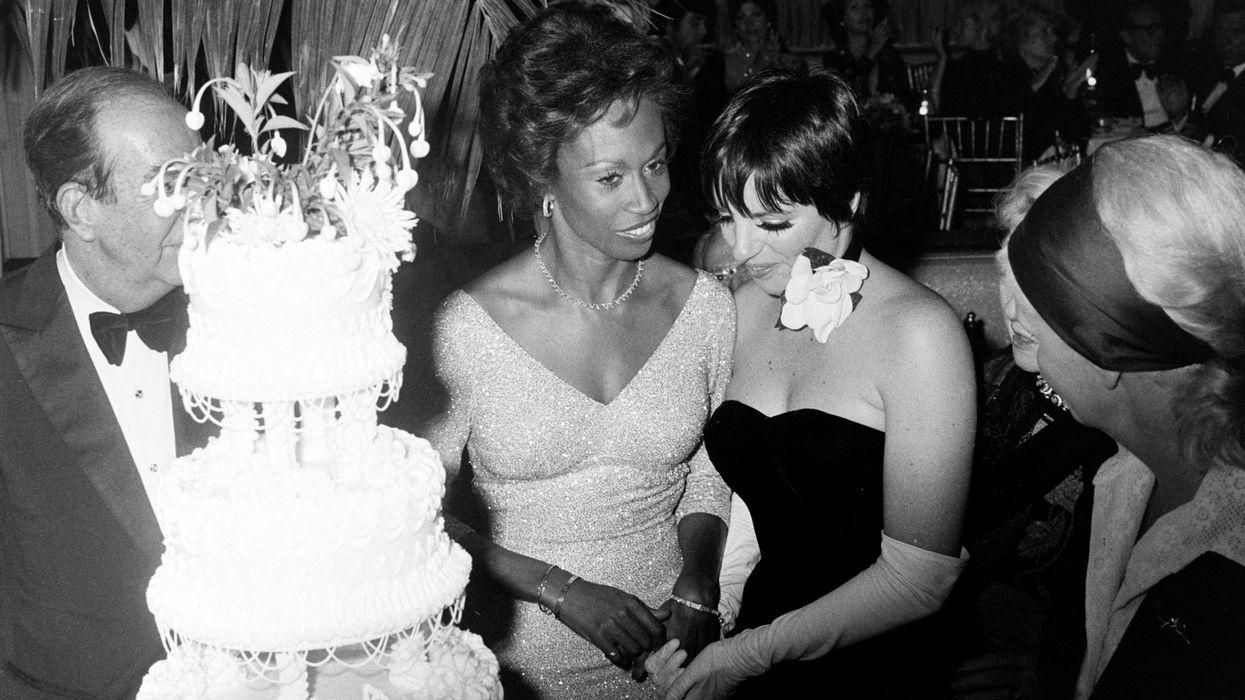How to Keep Friends & Influence People: A Wedding Season Survival Guide
How to survive and thrive this wedding season.

Do you or a loved one suffer from planning a wedding? Are you the bride, or just in a bridal party (which, let’s admit, can be just as much work)? Are you simply an invitee during a busy wedding season, just trying your best? If so, this article is for you!
Emily Post—the original arbiter of American wedding etiquette going back to the 1920s—would not recognize today’s nuptial landscape. Weddings have evolved, and so has the social protocol. No longer simply a night of feasting hosted in the village square for the local townsfolk, weddings nowadays tend to be a complex web of rituals and ill-defined but expectation-laden roles for friends and loved ones. This increased complexity has been surpassed only by increased expense. Nearly one-third of Americans report declining a wedding invitation because of the associated expense. 22% of Americans reported declining to be in a wedding party for the same reason. 37% of Americans report beginning to budget for weddings up to a year out, and 35% report planning to do so closer to the date. With all the personal expenses involved for guests, it’s no wonder that weddings are increasingly fraught and that wedding drama horror stories are on the rise.
Let’s be honest: weddings have an inherently weird vibe. It’s odd that a massive party that we throw for other people and expect them to attend more than any other event is simultaneously one where the hosts are allowed to make it as much about them as possible. Sure, we all accept that it’s the couple’s special day—as is the engagement party, bridal shower, bachelor party, bachelorette party, etc.—and we all do our best to indeed make it about them. But is this intention enough to suppress the creeping resentment of being made to schlep potted palms in a hideous $800 pastel dress because the bride changed her mind about the landscaping right before the ceremony? Probably not. If anything, this tradition of undisputed adherence to all matrimonial demands is more likely to cause tension and miscommunication. Thus, a conscientious approach to all the dynamics at play is definitely the best way to survive and thrive as a bride, groom, guest, and anything in between.
While it would be impossible to put together a definitive rulebook for all weddings, as a recent bride and frequent wedding guest/wedding party member, I have found that there are some general, all-encompassing tips for you and yours to survive the season unscathed, with friendships and any misguided “ivory” dresses intact.
Transparency, transparency, transparency. As seen above, weddings are expensive for everyone involved. Anyone planning events should be sure to be completely transparent with guests about expenses and expectations. Let’s take bachelorette parties: How many of us have RSVP’ed “Yes” just to get a $1,800 Venmo request a few weeks later for the sunset horseback ride, private yoga session, wine tasting reservation, and a 1/16 share of an Airbnb that only has three actual beds? Or replied “Attending” just to see that the event is booked for the weekend of a major dog show, and flight and hotel prices are now three times more expensive than usual? Stuff like this is not usually an intentional bait-and-switch, but it’s a bait-and-switch nonetheless and creates very avoidable tension and drama.
When planning events, make sure that guests 1) have a say in what activities are, if they are required to spend any of their own money on them; 2) are informed of the actual costs ahead of time; and 3) are assured that they can be comfortable saying no to any activity. As a guest, make sure to ask for price breakdowns before committing; it’s a completely reasonable request and will definitely mitigate unpleasant surprises and tension.
For example, if you are the maid of honor and planning the bachelorette party, make good use of Google polls for all activities and include price breakdowns so everyone can make informed decisions about what they want to participate in. More work? A bit. Better than having your sober friend pay $150 to drink seltzer water at a wine tasting because no one bothered to actually consult with her before booking and charging for things? Definitely! It’s not just polite, but will definitely pay off in friendship retention (and much better vibes in the Airbnb).
No asking guests to do work someone would normally get paid for. If you want someone involved with your wedding to do something like put together flowers, move furniture, take pictures, make food, etc., they have an absolute right to decline. There’s a reason we usually pay people for those things: skilled labor takes a lot of time and energy! Asking someone to do this stuff for free is a great way to ensure your wedding and friendship leave a real bad taste in their mouth. If someone volunteers, only accept if you can move forward with the gratitude and flexibility appropriate for the $0 price. If you want the ability to be as picky and cranky as you want, go with a contractual vendor relationship (as a lawyer, I can safely say that few friendships can weather that storm).
If you are the guest being asked to do these things and aren’t comfortable with it, just say no! The reasoning of either not being a professional and/or not wanting to complicate a friendship with business dealings is absolutely good enough. In my experience, if someone is bold enough to ask for such things out of the blue, they will probably not be the easiest “customer” to deal with. It’s better to leave this to the professionals than enter into a situation that can cause a lot of tension and resentment, let alone extra stress for you. And on that note…
“No” is not a bad word. I’ve seen friendships end over someone not being able to attend a wedding event for completely legitimate reasons like work, childcare, or expense. We all need to normalize hearing “no” and saying it when it comes to weddings. It’s better for everyone that all participants are there with enthusiastic consent. The hard truth is that no one is actually obligated to spend one iota of their time and money for someone else’s special day. No one should have to take out a loan just to attend a bachelorette party and avoid hurting someone’s feelings. Does it hurt if your good friend can’t make your bridal shower? Of course. But take some time to think about whether you trust that it doesn’t reflect on your friendship that the stars haven’t aligned for your friend to fly to the opposite coast on a random weekend in April. If you’re unsure, either talk to them about it, or think about the reasons you don’t feel comfortable doing so. There may be a bigger problem in the friendship to work on, but I guarantee that blowing up this particular issue is not the best way to address it.
Relationships are complicated, but in essence, they boil down to trust, not to whether someone has enough time and money to spend on you whenever you ask. The same principle applies if you’re a guest: not being able to spend endless time and money on someone’s wedding shouldn’t make them love you less! They should understand and not take it personally.
If you have to ask, don’t wear it. Look, I get that the rules around wedding attire seem super arbitrary. And it sucks that you haven’t had a great place to wear your champagne silk dress or cream linen suit. It’s one thing to ask for clarification on the stated dress code or what “semi-formal” means (although, as a former stressed-out bride, for the love of God, just Google it y’all), but it’s another to start looking for exceptions to that dress code or to general wedding protocol because you’re not in the mood to shop. A good rule of thumb is that if you have to ask, just don’t wear it! This goes for whether you’re wondering if your attire to a wedding event is too informal, too revealing, etc.—9/10, your instincts on something not being appropriate are correct, and you should follow them.
It’s about respect for the couple. For example, I toyed with the idea of my wedding party wearing white (they actually refused because they didn’t want to be judged, which is very legitimate), because I don’t actually care about the white thing from the standpoint of someone somehow confusing them with me as the bride. But if someone had actually shown up wearing unsanctioned white to my wedding, with it being clearly in the cultural consciousness that this is a disrespectful move, it would have been hard not to take that personally. Likewise, if someone had wanted to wear shorts to the ceremony (I wish I could say I had made up this example for dramatic effect, but sadly, this actually happened), I would have been a bit hurt that they didn’t find my wedding worthy of, you know, wearing pants. There’s a reason there’s a trend of calling out or even destroying wedding guests’ “cream” or “eggshell” dresses; however someone intended it, it just looks like they’re making a purposeful choice to do something disrespectful. Red dresses, patterns on a white background, what have you—if you have to ask, just avoid it. We all know Reformation has plenty more options.
And last but not least…
Weddings don’t stop people from being humans with feelings. Okay, duh. But let me explain. Whether you’re a bride, groom, maid of honor, best man, mother of the bride, etc., don’t make the mistake of thinking that weddings are a trump card that make any insane request fly without causing tension. Couples are absolutely free to interpret bridal party duties as paying for $2,000 outfits, losing weight on demand, and hand-making centerpieces–but they cannot take for granted that their loved ones will agree or be happy about it. Oftentimes, bridal party members or guests feel like they can’t say no, but that doesn’t stop them from being human beings just as susceptible to feeling used, undervalued, or insulted just as they would in any other situation. Temper your expectations and keep your requests reasonable. Put yourself in others’ shoes and think about whether YOU would actually be happy about paying for multiple destination bachelorette parties or changing your hair color at your own expense to match the other girls. If the answer is no, don’t ask for it. If you really don’t care about impacting your relationships with people, I guess go ahead and do your thing–you wouldn’t be the first person to get blocked by your maid of honor after the wedding day. But, if you want this to be a fun, happy experience that positively enhances your relationships, keep the above at the top of your mind throughout the entire process.
And as a guest or bridal party member, don’t make excuses for someone who is treating you poorly. Continue to hold your friendship to the same standard for mutual respect and communication that you always have. Not to be dramatic, but I guarantee they’d rather let the caterer know they’re a couple less than pay to photoshop you out of all the pictures once you friend break-up with them after the wedding because you let your resentment build up to a breaking point. If something has become a huge issue for you, it’s better to have a kind conversation now than to let it simmer. Everyone deserves to have fun with the process, not just the bride and groom.
So there it is! Go forth and celebrate, beautiful people. And remember, weddings are supposed to be about one thing overall: love. Feel it, channel it, practice it, and everything will turn out great–I promise!




